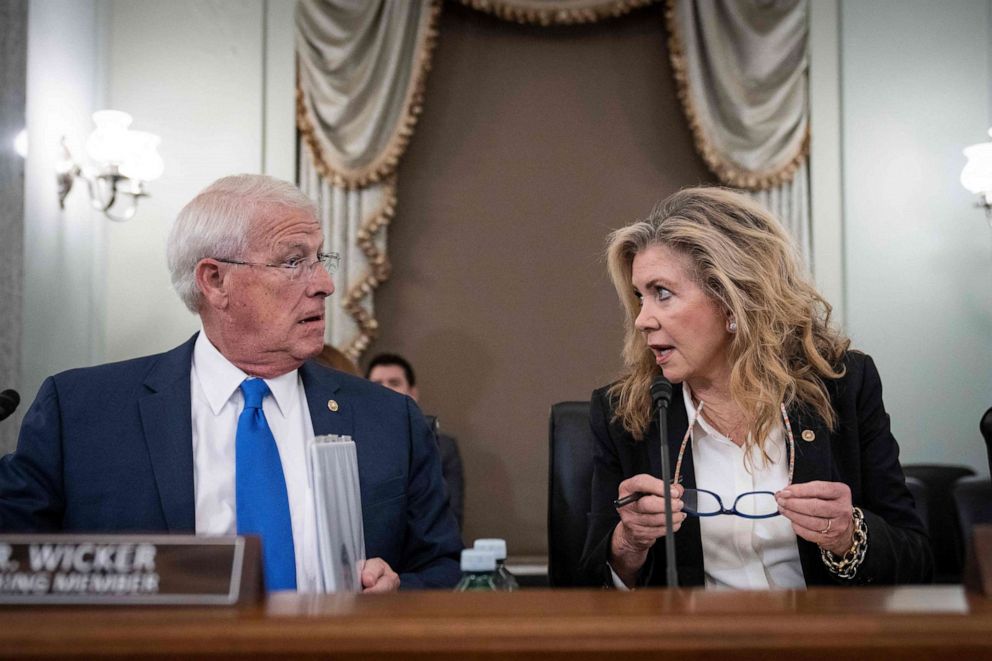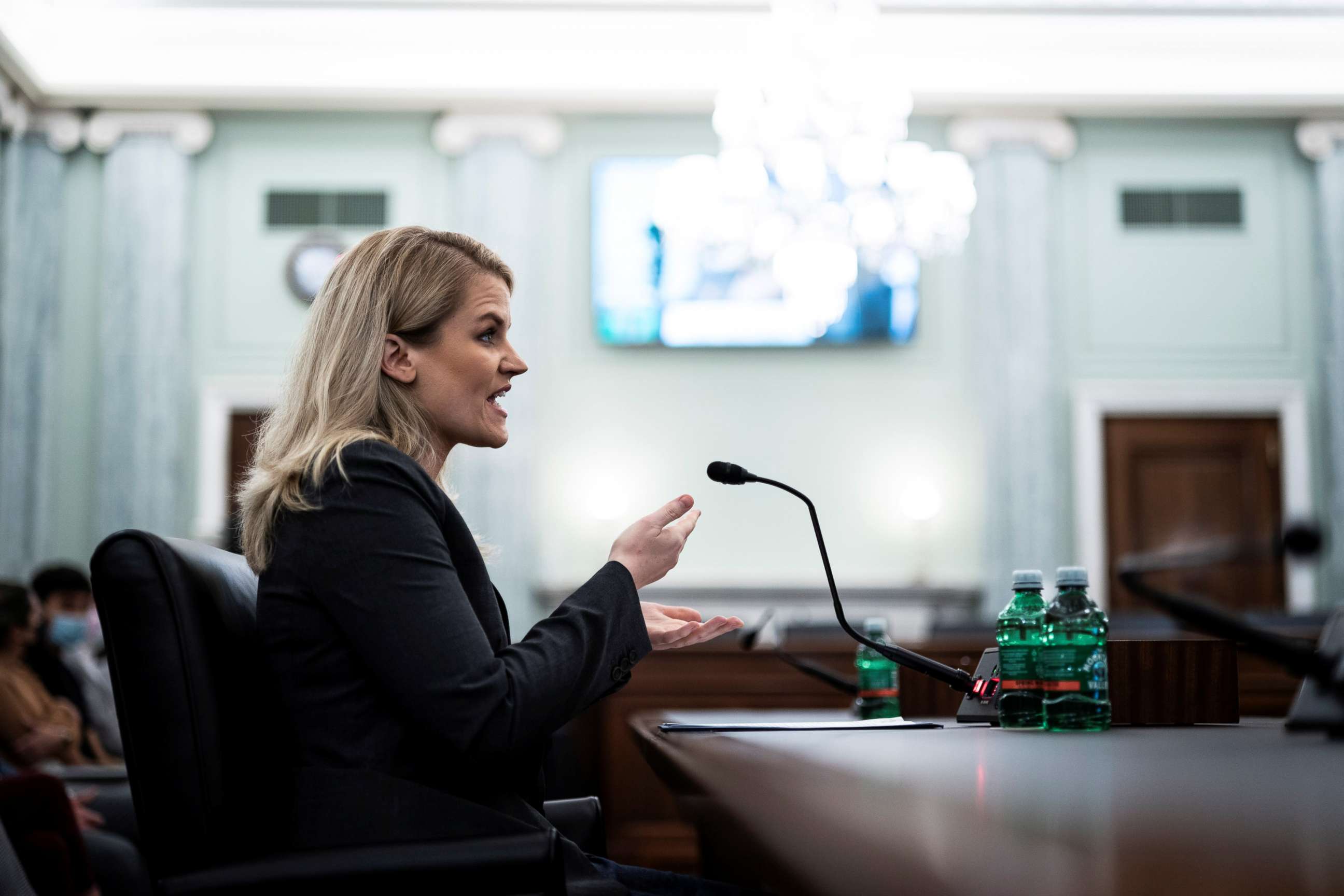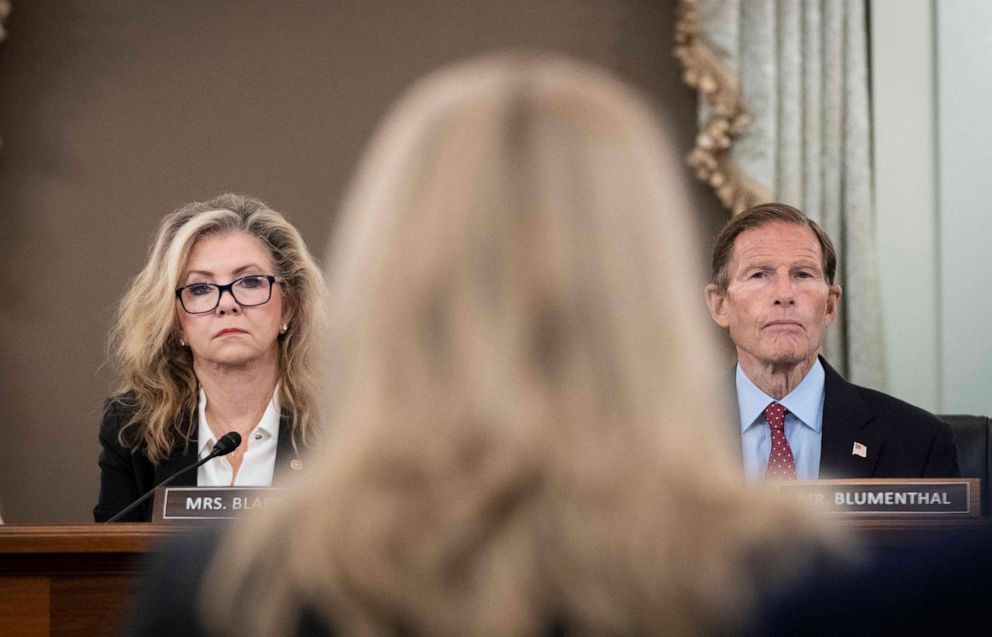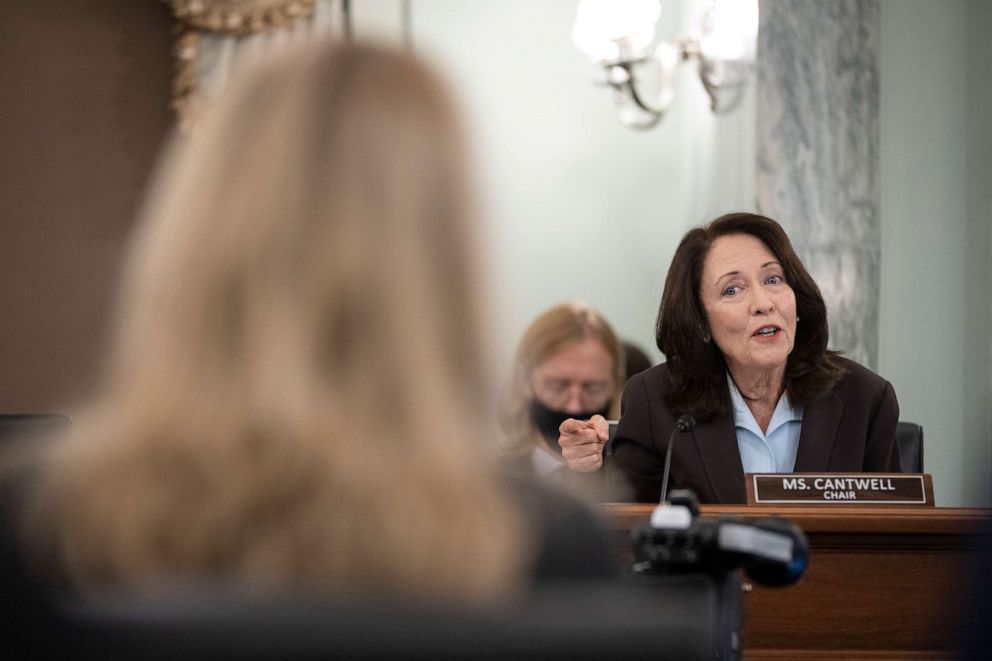Hearing adjourns with plea for more whistleblowers to speak out
After more than three hours of testimony, the Senate Commerce subcommittee hearing with Facebook whistleblower Frances Haugen, who has accused the company of deceiving users and investors and putting "profits before people," has adjourned.
While lawmakers battle it out over President Joe Biden’s agenda, they united on Tuesday to blast Facebook CEO Mark Zuckerburg’s silence on Haugen accusations, which raise alarms about the mental health of children and real-world dangers of hate speech she said Facebook knows it perpetuates but ignores. Lawmakers said she has provided hundreds of pages of documents of internal data to back her claims.
Sen. Richard Blumenthal, D-Conn., the subcommittee chair, closed by reading a text he said he received from a constituent who said he was in tears watching the hearing because, he said, he's seen first-hand how Instagram has changed his teenage daughter.

"'My 15-year-old daughter loved her body at 14. Was on Instagram constantly and maybe posting too much. Suddenly she started hating her body. Her body dysmorphia, now anorexia, and was in deep deep trouble before we found treatment. I fear she'll never be the same,'" Blumenthal said, quoting the father.
Haugen said "because of the nature of engagement-based ranking and amplification of interests," Facebook and Instagram users are "pushed towards extreme dieting and pro-anorexia content very rapidly" -- but that the algorithm perpetuating that could be changed.
After raising new allegations concerning Zuckerberg’s actions, national security concerns, and employee bonuses tied to a system shown to fuel misinformation, Haugen closed with a call to Congress to address Facebook’s growth and provide oversight as it’s historically done for other industries, like tobacco, in the past.
Saying that modern technological systems "walled off," Haugen also called on more whistleblowers with direct knowledge of wrongdoings in big tech to step forward.

"The fact we're being asked these false choices -- it's just an illustration of what happens when the real solutions are hidden inside of companies," she said. "We need more tech employees to come forward through legitimate channels, like the SEC (Securities and Exchange Commission) or Congress, to make sure that the public has the information they need in order to have technologies be human-centric, not computer central."






